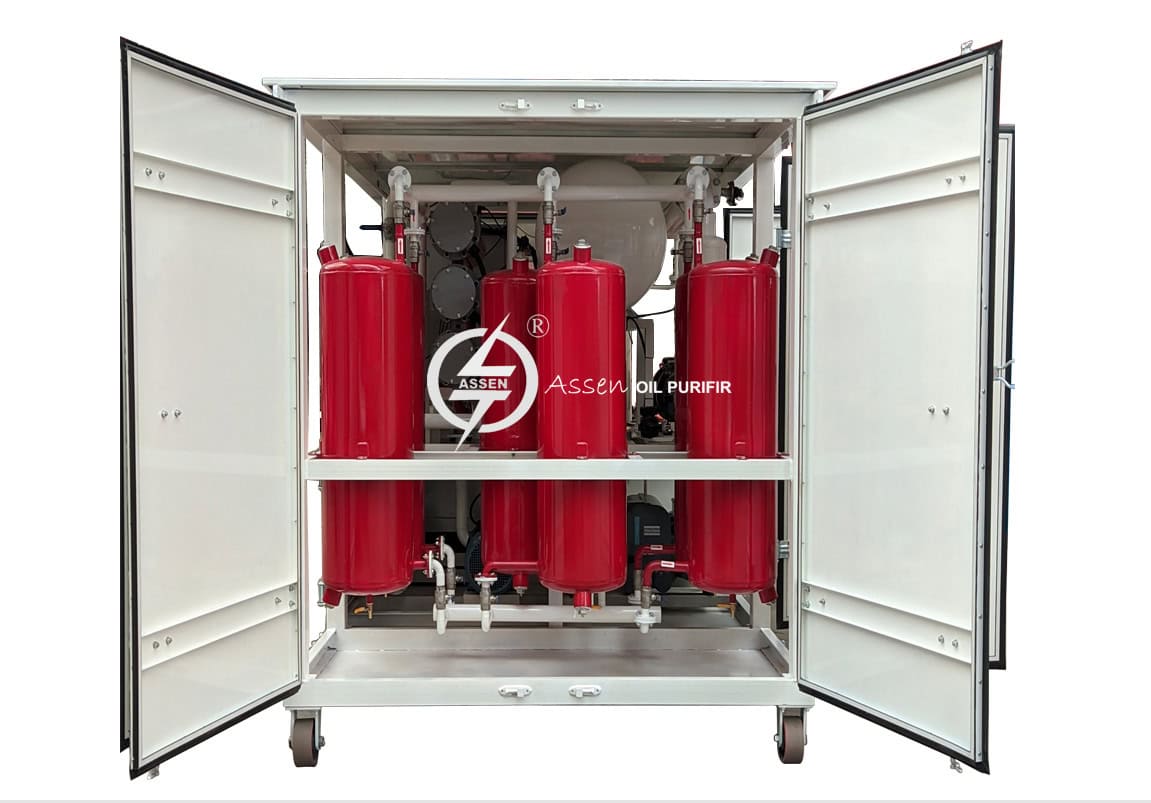Just How Regenerated Transformer Oil Supports Sustainability Goals
Just How Regenerated Transformer Oil Supports Sustainability Goals
Blog Article
Why Regenerated Transformer Oil Is Crucial for Reliable Power Solutions
The important function of regenerated transformer oil in making sure the reliability of power systems can not be overstated. By recovering the oil's intrinsic chemical and physical buildings, the regrowth procedure substantially improves its dielectric toughness and thermal performance.
Value of Transformer Oil
Transformer oil plays a vital duty in the efficient operation of electrical transformers. By offering thermal conductivity, transformer oil dissipates heat produced during electric procedure, which is crucial for maintaining optimal operating temperatures and extending the life expectancy of the tools.
Moreover, transformer oil serves as an obstacle against wetness and air, which can cause oxidation and deterioration of transformer materials. The existence of impurities in the oil can considerably impair its insulating homes, causing operational inadequacies and prospective tools failure. Routine tracking and maintenance of transformer oil are consequently crucial to making sure the continued performance of transformers.
The top quality and structure of transformer oil are critical, as they straight impact the dependability and performance of the electric systems in which they operate. Comprehending the importance of transformer oil is crucial for energies and industries reliant on durable power infrastructure, highlighting the requirement for efficient management and regeneration procedures to maintain oil stability with time.
Advantages of Regeneration Refine

Moreover, the regeneration process reduces the deterioration of oil, which can cause increased oxidation and acid development. This not only enhances the integrity of the oil yet likewise lowers the risk of transformer failures because of insulation malfunction. The enhanced quality of regrowed oil permits transformers to operate at optimal degrees, eventually bring about improved energy performance and minimized functional expenses.
In addition, the regrowth procedure contributes to keeping the total wellness of the power system. Transformers can run much longer without the demand for oil replacement, thus reducing downtime and maintenance initiatives. In recap, the regeneration process provides substantial advantages by improving the longevity and efficiency of transformer oil, making certain that power systems operate reliably and effectively with time.
Environmental Impact and Sustainability
The regrowth process of transformer oil dramatically minimizes environmental concerns connected with oil disposal and waste monitoring. Conventional disposal techniques for used transformer oil position substantial threats, including soil contamination and water air pollution. By restoring oil, these risks are significantly minimized, as the process reuses existing sources rather than contributing to waste buildup.
Furthermore, regenerated transformer oil can be reused in numerous applications, which advertises a circular economic situation. This not only lessens the need for virgin oil removal-- a process that can be ecologically damaging-- yet also preserves natural sources. The regeneration procedure itself employs innovative filtering and purification methods that remove harmful contaminants, guaranteeing that the end product goes beyond or fulfills industry requirements for efficiency and security.

Enhancing Transformer Efficiency
Significant enhancements in transformer performance can be achieved via using regenerated transformer oil. This oil, generated via advanced filtration processes, substantially boosts the electrical insulation homes of transformers. By getting rid of impurities and contaminants that commonly compromise efficiency, restored oil makes sure superior dielectric strength, minimizing the danger of electric failures.
In addition, regenerated transformer oil exhibits boosted thermal conductivity, which facilitates effective warm dissipation. This characteristic is essential for maintaining ideal operating temperatures, consequently extending the lifespan of transformers and minimizing the likelihood of getting too official statement hot - Regenerated Transformer Oil. Boosted thermal administration also contributes to the general integrity of power systems
In addition, the chemical security of restored oil stops the development of destructive acids and sludge, which can negatively affect transformer elements. By keeping a cleaner click this site internal setting, this oil lessens maintenance demands and prolongs service periods.
Cost-Effectiveness and Performance
In regards to cost-effectiveness and effectiveness, regenerated transformer oil provides a compelling choice to conventional oils. The regeneration process not only eliminates contaminants yet additionally brings back the oil's original properties, prolonging its useful life expectancy. This longevity translates right into reduced frequency of oil substitute, consequently reducing functional prices with time.
Additionally, making use of restored oil can substantially reduce power losses associated with ineffective shielding liquids. Its remarkable dielectric residential or commercial properties make sure optimal performance, improving the integrity of power systems. As a result, organizations profit from reduced upkeep costs and lowered downtime, fostering an extra effective operational atmosphere.

Final Thought
To conclude, the regrowth of transformer oil plays a crucial role in guaranteeing the dependability and effectiveness of power systems. By restoring the important chemical and physical properties of the oil, this process enhances dielectric strength and thermal conductivity, inevitably minimizing the risk of insulation malfunction. Additionally, the environmental advantages related to recycling resources add to sustainability initiatives, while cost-effectiveness and enhanced efficiency underscore the necessity of making use of regenerated transformer oil in modern-day electrical framework.
Transformer oil plays a crucial function in the efficient procedure of electric transformers. Routine monitoring and upkeep of transformer oil are for that reason important to making certain the proceeded performance of transformers.
The regeneration procedure of transformer oil considerably relieves environmental problems associated with oil disposal and waste administration. By extending the lifecycle of visit homepage transformer oil, the energy and resources commonly consumed in generating new oil are significantly lowered.Considerable enhancements in transformer efficiency can be achieved through the usage of regenerated transformer oil.
Report this page